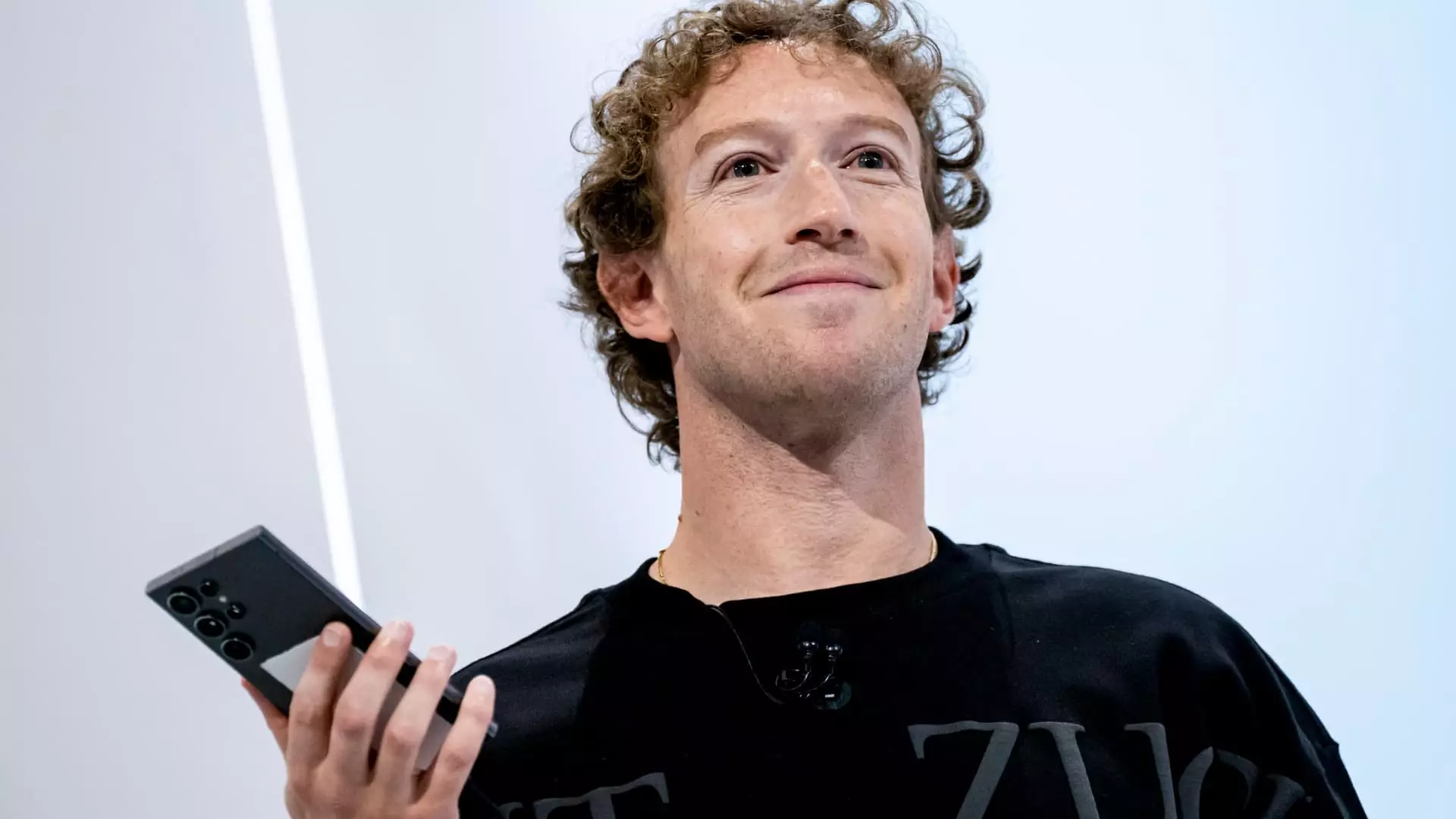In a recent podcast episode featuring Joe Rogan, Meta CEO Mark Zuckerberg shared his thoughts on the growing concern surrounding content regulation on social media platforms. His revelations highlighted the delicate balance between promoting public health and managing the potential consequences of misinformation. This discussion opened a window into the intricate relationships that exist between government agencies, social media companies, and the flow of information regarding Covid-19 and vaccination efforts.
Zuckerberg characterized himself as a supporter of vaccination initiatives, asserting that the benefits of vaccines outweigh their downsides. However, he articulated his discomfort with the censorship strategies employed during the Biden administration’s campaign to promote vaccines. The CEO referred to an environment in which challenging information regarding vaccine side effects was actively suppressed. This raises significant ethical questions about the responsibility that social media platforms hold in disseminating information versus the duty of government entities to protect public health.
During the podcast, Zuckerberg noted that his company faced substantial pressure from government representatives to eliminate content that discussed potential side effects of Covid vaccines. He recounted, “They pushed us super hard to take down the things that were honestly true.” This statement appears to underline a problematic intersection between public health advocacy and freedom of expression that resonates with many who have been vocal about the issue of misinformation online.
In a coinciding move, Meta recently announced it would reevaluate how it manages content verification on its platforms. Moving away from reliance on third-party fact-checkers, the company intends to implement a community-based approach, allowing users to contribute comments assessing the accuracy of information. This shift may reflect a recognition of the diverse opinions present in the online sphere but could also pose a risk. While user-generated commentary could promote a more democratic approach to information sharing, it may also lead to the proliferation of unverified claims.
Interestingly, the change in strategy aligns Meta more closely with its competitors, particularly X, formerly known as Twitter, which has adopted a similar stance on information verification under the leadership of Elon Musk. It raises pertinent questions about the implications of this shift for public trust in information shared across these platforms. Users may find themselves sifting through a new layer of commentary with varying degrees of reliability, which could obscure the line between fact and opinion even further.
The revelation that the U.S. government actively encouraged censorship of specific content is alarming. President Biden’s criticism of billionaire-owned platforms lacking adequate fact-checking mechanisms highlights the risks associated with concentrated power in the hands of a few tech moguls. The lack of accountability for information shared on social media could lead to significant fallout when misinformation threatens public safety.
Moreover, Zuckerberg’s comments regarding his regret over previous censorship decisions suggest a growing concern among tech leaders about overreach and its consequences. The backlash against technologies imposed by external forces demonstrates a powerful narrative that must be owned by both companies and their governments. This also serves as a call for greater collaboration between technology firms and legislators to establish a framework that encourages transparency while prioritizing the verification of critical information.
Zuckerberg further expressed his concern about the U.S. falling behind, particularly in comparison to regulatory measures established by international bodies such as the European Union. His statements reflect an awareness of the competitive landscape that the technology sector faces globally. As platforms navigate political pressures and the evolving needs of their user bases, a more strategic approach to regulation and oversight is essential.
This conversation highlights the complicated relationship between social media companies and the information they disseminate. It also illustrates the ongoing challenge of addressing both public health needs and individual liberties in an era fraught with uncertainty. Zuckerberg’s candid insights spark dialogue about the future of content regulation, emphasizing the necessity for thoughtful policies that can protect both free speech and public welfare in an increasingly complex digital environment.


Leave a Reply